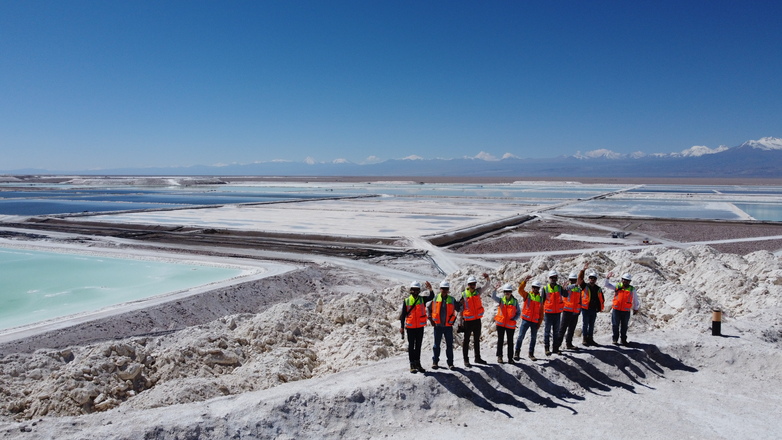Responsible mining contributes to economic development in Latin America
Minerals for a just transition in Latin America (MinJust)
 © GIZ/BGR
© GIZ/BGR
Minerals for a just transition in Latin America (MinJust)

German Federal Ministry for Economic Cooperation and Development (BMZ), European Union (EU)

Latin America and the Caribbean
Latin America and the Caribbean

Latin America and the Caribbean, Economic Commission for Latin America and the Caribbean (ECLAC)
Latin America and the Caribbean - Economic Commission for Latin America and the Caribbean (ECLAC)

2025 to 2028

Climate, Environment, Management of Natural Resources
The energy transition requires minerals such as lithium and copper to produce and store renewable energy. Since many of these minerals are abundant in Latin America, mining can contribute to economic growth and development in the region. At the same time, mining can also have negative social and ecological impacts.
Therefore, countries have to implement environmental laws and set up a supervisory authority. It is also essential to increase tax transparency, improve revenue management, minimise social conflicts in mining regions and involve local stakeholders in decision-making.
Minerals in Latin America and the Caribbean (LAC) are mined on the basis of a just transition, ensuring that economic change is equitable at a social and ecological level.
 © GIZ/BGR
© GIZ/BGRThe project works with the United Nations Economic Commission for Latin America and the Caribbean (ECLAC) in advising mineral producing countries to:
The project supports the exchange of best practices amongst mineral producing countries. It also implements pilot projects in mining regions to test new approaches. The lessons learned serve for the regional discussions.
Last update: February 2025